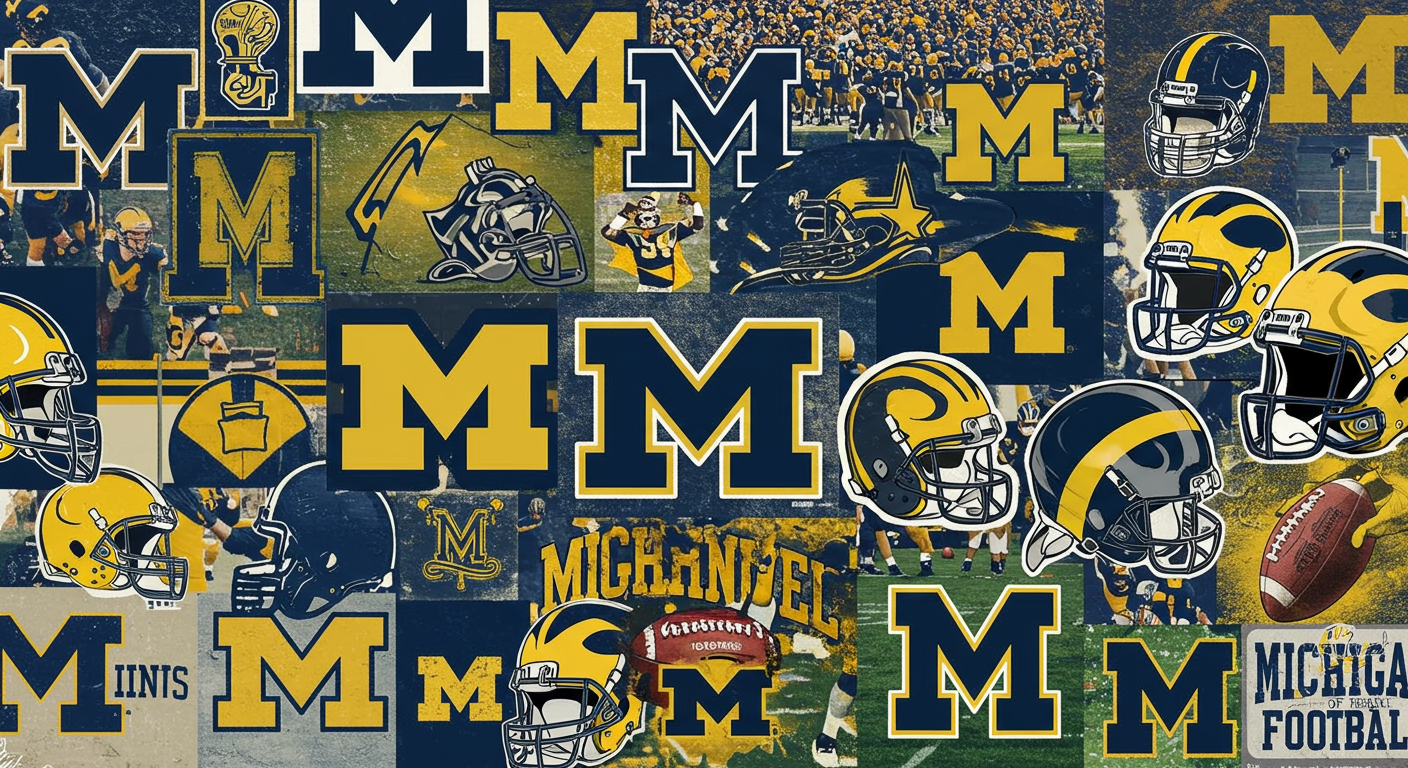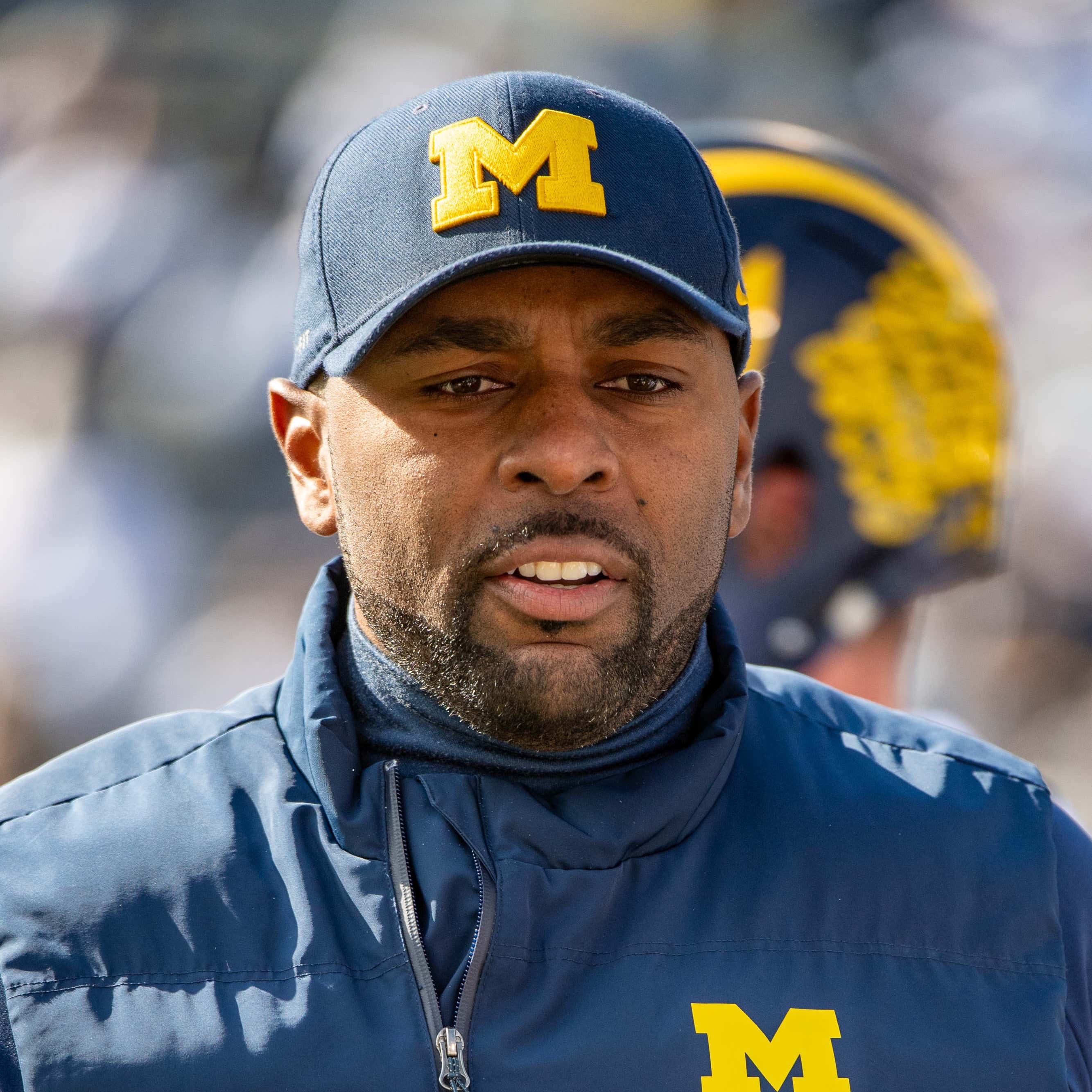
1. Overview: The Infractions and NCAA’s Verdict
In August 2025, the NCAA Division I Committee on Infractions released its decision regarding a major scandal involving the University of Michigan football program. The case centers on an illegal sign-stealing and off-campus scouting operation, along with multiple recruiting violations, failures to cooperate with investigators, and systemic noncompliance within the program (NCAA, The Guardian).
The infractions were classified as follows:
Level I – Aggravated: Michigan (the institution), and individuals Connor Stalions, Jim Harbaugh, and Denard Robinson.
Level II – Standard: Sherrone Moore.
Level II – Mitigated: Chris Partridge (NCAA).
Aggravating factors cited included extensive planning, multiple violations, authority condonement, and a pattern of blatant noncompliance (NCAA).
2. What Did Michigan Do Wrong?
A. Illegal Sign-Stealing & Scouting Scheme
Over the 2021–2023 seasons, former staff member Connor Stalions orchestrated an illicit operation dubbed “dirty film.” He purchased and transferred tickets to staff, interns, and acquaintances, enabling them to attend opponents’ games and film sideline signals—an action explicitly prohibited by NCAA Bylaw 11.6.1 (The Guardian).
In total:
56 instances involving 52 games against 13 future opponents were documented.
Evidence was bolstered by ticket records, transfer data, witness statements—but much was destroyed, including Stalions discarding his phone and film (The Guardian).
B. Failure to Cooperate
Key figures—Stalions, Harbaugh, Moore, and Robinson—were accused of providing false or misleading information, destroying evidence, and refusing interviews or records when requested (The Guardian).
Specifically:
Moore deleted a 52-message text thread with Stalions the day the scheme was revealed.
Harbaugh declined to cooperate, refusing to provide requested documentation or sit for interviews.
Robison, too, misled investigators or destroyed materials (The Guardian).
C. Recruiting Violations & Compliance Breakdown
The NCAA uncovered impermissible benefits extended to four prospective student-athletes and nearly 100 unauthorized recruiting communications before permitted dates (The Guardian).
The football program also chronically failed to monitor its staff and resisted oversight from the university’s compliance office—creating an environment where rule violations thrived (Maize n Brew).
3. Who’s Affected: Individuals & Institutional Impact
Individuals
Connor Stalions: Received an 8-year show-cause order, effectively barring him from NCAA athletics (The Guardian).
Jim Harbaugh (former head coach): Issued a 10-year show-cause penalty, effective after his current four-year penalty expires in 2028 (The Guardian).
Denard Robinson (former director of player personnel): Received a 3-year show-cause (The Guardian).
Sherrone Moore (current head coach): Given a 2-year show-cause, plus a three-game suspension—two games in 2025, and one in 2026 (The Guardian).
Chris Partridge: Categorized under Level II–Mitigated violations, though specific penalties were lighter (NCAA).

Institution (University of Michigan)
Michigan faces sweeping sanctions:
Financial penalties including:
- Forfeiture of over $20 million in projected postseason (bowl/CFP) revenue for 2025–2026.
- A $50,000 fine.
- 10% reductions in both:
- The football program budget.
- Football scholarships.
(The Guardian, AP News).
Forfeiture of over $20 million in projected postseason (bowl/CFP) revenue for 2025–2026.
A $50,000 fine.
10% reductions in both:
- The football program budget.
- Football scholarships.
(The Guardian, AP News).
The football program budget.
Football scholarships.
(The Guardian, AP News).Recruiting restrictions:
- 25% fewer official visits in 2025–26.
- 14-week ban on recruiting communications (The Guardian).
25% fewer official visits in 2025–26.
14-week ban on recruiting communications (The Guardian).
Notably, Michigan avoided both a postseason ban and vacated wins—likely to spare current players from punishment—and no wins were vacated (The Guardian).
4. What It Means for Michigan Football
Financial & Competitive Impact
Losing postseason revenue in the tens of millions hits the bottom line, affecting operations and future investment.
Reduction in budget and scholarships tightens financial flexibility and may impact depth and player development (The Guardian).
Curtailing official visits and communications limits recruiting reach—a serious blow in high-stakes Big Ten/CFP recruitment arms race (The Guardian, The Sun).
Leadership and Culture
Moore’s suspension disrupts coaching continuity during the early 2025 season—and his show-cause order may shadow his leadership credibility (The Guardian).
A pervasive culture of noncompliance under Harbaugh, as cited by the NCAA, must be addressed with cultural and structural reforms (Maize n Brew).
Reputation & Legacy
Michigan’s national title status remains intact—NCAA president “declared” that the championship was “won fairly” despite the investigation (Wikipedia, One Foot Down).
Nonetheless, perception has suffered—commentators and rivals accuse the NCAA of leniency and question Michigan’s integrity (One Foot Down).
Long-term Consequences
The probation period (2025–2029) will be under scrutiny—any successive missteps could trigger harsher penalties.
The program must rebuild trust with the compliance office and NCAA, ensuring that oversight is real, proactive, and effective.
Summary Table
| Aspect | Details / Impacts |
|---|---|
| Financial Penalties | >$20M postseason revenue loss, $50K fine, 10% reduction in budget & scholarships |
| Recruiting Restrictions | 25% fewer visits; 14-week communication ban |
| Probation | 4 years (2025–2029) |
| Individual Sanctions | Stalions: 8-year show-cause Harbaugh: 10-year show-cause (from 2028) Robinson: 3-year show-cause Moore: 2-year show-cause + 3-game suspension |
| No Postseason Ban / Vacated Wins | Institutional reprieve extended to current athletes |
| Cultural Reboot Needed | Rebuilding compliance culture is essential for future stability |
In conclusion, the NCAA’s ruling against Michigan is historic in scale—financially devastating but spared the harshest competitive penalties. The sanctions underscore serious cultural and compliance failures within the program, prompting an urgent need for internal reforms. Michigan's leadership, especially under Moore, faces the challenge of restoring integrity, stability, and national standing while navigating restrictive sanctions.

